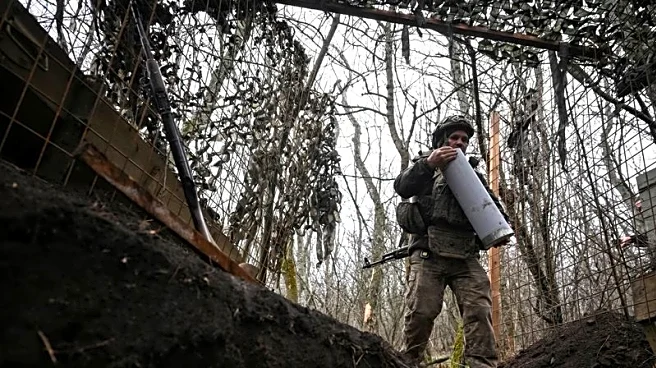What's Happening?
The European Parliament and Council negotiators have reached a provisional agreement to simplify the EU's common agricultural policy (CAP) requirements. This agreement aims to reduce administrative and regulatory burdens on farmers during the current
CAP programming period. Key elements of the agreement include more flexibility for farmers in maintaining land in good agricultural and environmental condition, limiting farm inspections to one per year, and increasing financial support for small-scale farmers. The agreement also includes provisions to protect biodiversity by allowing land considered arable as of January 1, 2026, to maintain its status without frequent ploughing. Organic farmers will automatically comply with several environmental requirements, reducing the need for additional checks.
Why It's Important?
The simplification of the EU's agricultural policy is significant as it addresses long-standing concerns about the administrative burden faced by farmers. By reducing red tape and increasing financial support, the agreement aims to enhance the competitiveness and sustainability of the agricultural sector. This move is expected to benefit over nine million farmers across Europe, providing them with clearer environmental guidance and more efficient rules. The increased support for small-scale farmers could lead to greater investment in rural areas, boosting local economies and promoting sustainable agricultural practices.
What's Next?
The preliminary agreement requires approval from both the Council and the European Parliament before it can be implemented. Once approved, the new rules will take effect from January 1, 2026. Stakeholders, including farmers and environmental groups, are likely to monitor the implementation closely to ensure that the intended benefits are realized. The simplification of CAP rules is part of a broader effort by the European Parliament to revise EU regulations, aiming to boost competitiveness and unlock investment capacity for businesses.
Beyond the Headlines
The agreement reflects a growing recognition of the need to balance agricultural productivity with environmental sustainability. By simplifying regulations, the EU is taking steps to encourage good practices rather than penalizing farmers with complex requirements. This approach could serve as a model for other sectors seeking to reduce bureaucratic hurdles while promoting sustainable development.
















